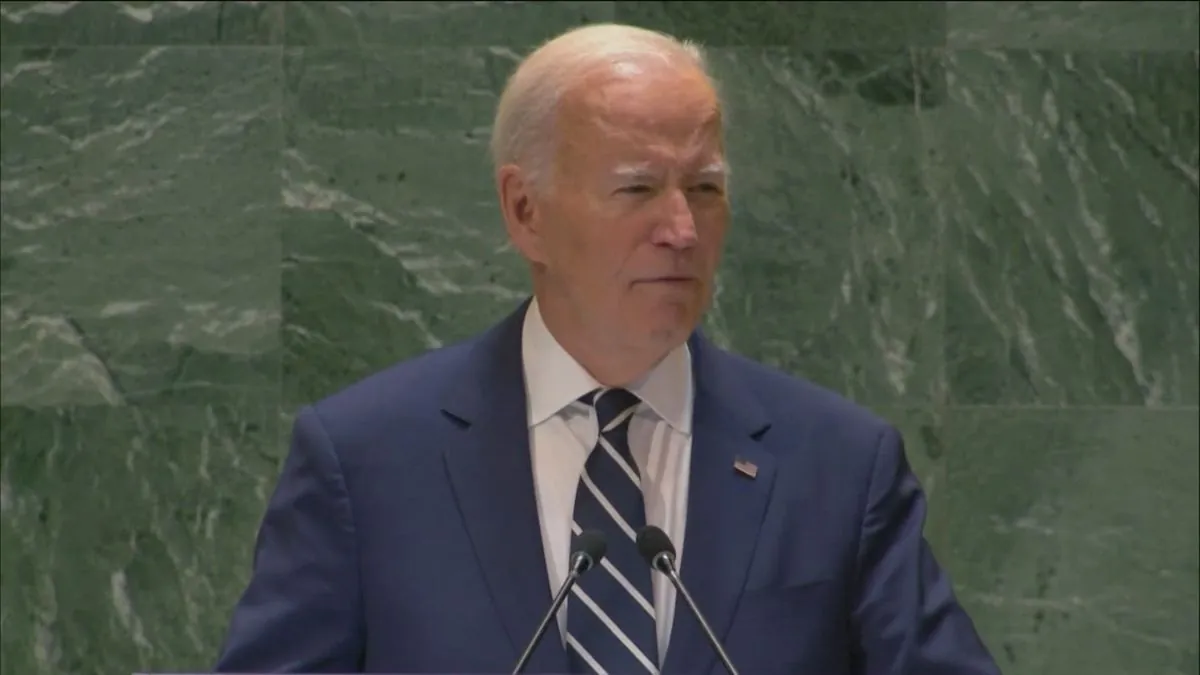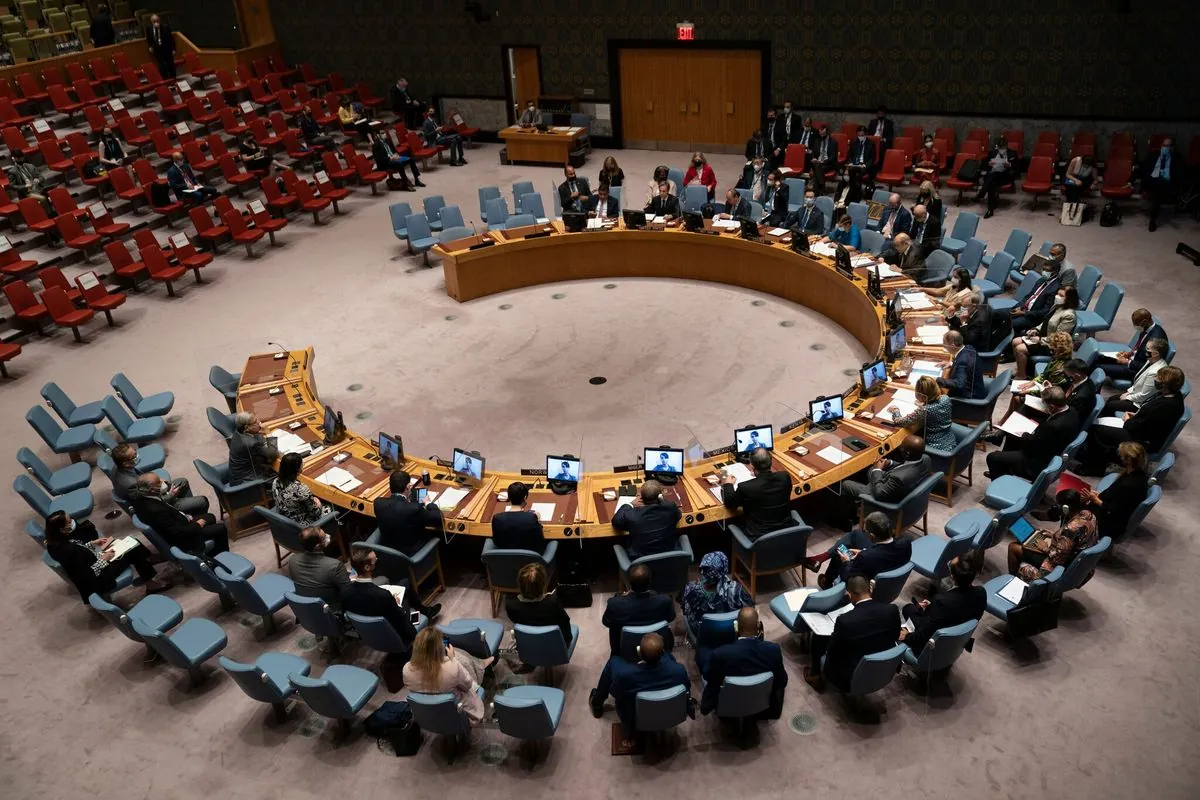Biden's Final UN Address: Global Conflicts and Democracy at Forefront
In his last UN speech, President Biden emphasized global alliances and democracy amid Middle East tensions. He reflected on his career and decision not to seek reelection, urging leaders to prioritize public service.

In his final address to the United Nations General Assembly, President Joe Biden emphasized the importance of global alliances and democracy amidst escalating conflicts worldwide. The speech, delivered 11 months and 17 days after the Hamas attack on Israel, highlighted the challenges facing the international community and Biden's efforts to address them.
The United Nations, founded in 1945 after World War II, provided the backdrop for Biden's message. With 193 member states represented, the General Assembly Hall served as a fitting venue for the President's call to action. Biden's address touched on several key issues, including the ongoing conflicts in Ukraine, Gaza, and Sudan.
A significant portion of the speech focused on the situation in the Middle East, particularly the escalating violence between Israel and Hezbollah. Biden stressed the need for a diplomatic solution, stating:
"Full scale war is not in anyone's interest. The situation has escalated. A solution is still possible. In fact, it remains the only path to lasting security and to allow the residents of both countries to return to their homes."
The President also addressed the humanitarian crisis in Gaza, acknowledging the suffering of both Israeli and Palestinian civilians. He reiterated his administration's efforts to achieve a ceasefire between Israel and Hamas, while recognizing the challenges in reaching such an agreement.
Biden's support for Ukraine against Russian aggression featured prominently in his speech. He urged the international community to maintain its support for Ukraine, emphasizing the importance of standing firm against aggression. This aligns with the UN's peacekeeping missions in various conflict zones around the world.
The President's address also touched on broader themes of global cooperation. He highlighted the UN's role in addressing climate change through annual Climate Change Conferences (COP) and the adoption of Sustainable Development Goals in 2015. These initiatives underscore the importance of international collaboration in tackling global challenges.

In a notable moment, Biden reflected on his decision not to seek a second term, framing it as a continuation of his commitment to democracy. He emphasized the importance of public service and the need for leaders to prioritize their constituents' interests over personal power.
The speech was not without its critics. King Abdullah II of Jordan expressed concern over the humanitarian situation in Gaza, reflecting the frustration of many US allies regarding the administration's policy towards Israel. This tension highlights the complex dynamics at play in international diplomacy.
As Biden concluded his address, he reminded the assembly of the UN's founding principles and its ongoing relevance in today's world. With its six official languages and diverse membership, the UN continues to serve as a forum for global dialogue and cooperation.
The President's final UN address serves as a capstone to his long career in public service. As the world faces numerous challenges, from regional conflicts to climate change, Biden's message of unity and democratic values resonates with the UN's mission to maintain international peace and security.


































